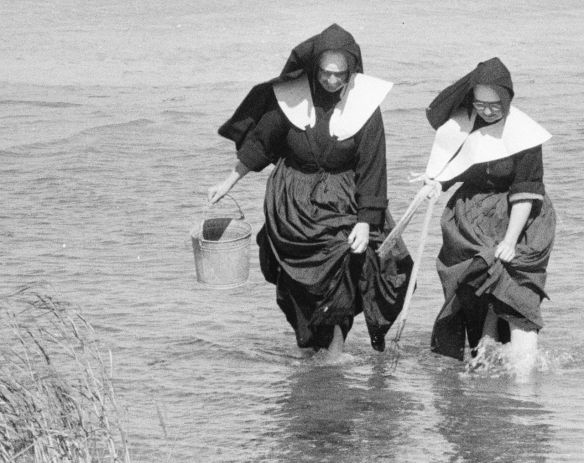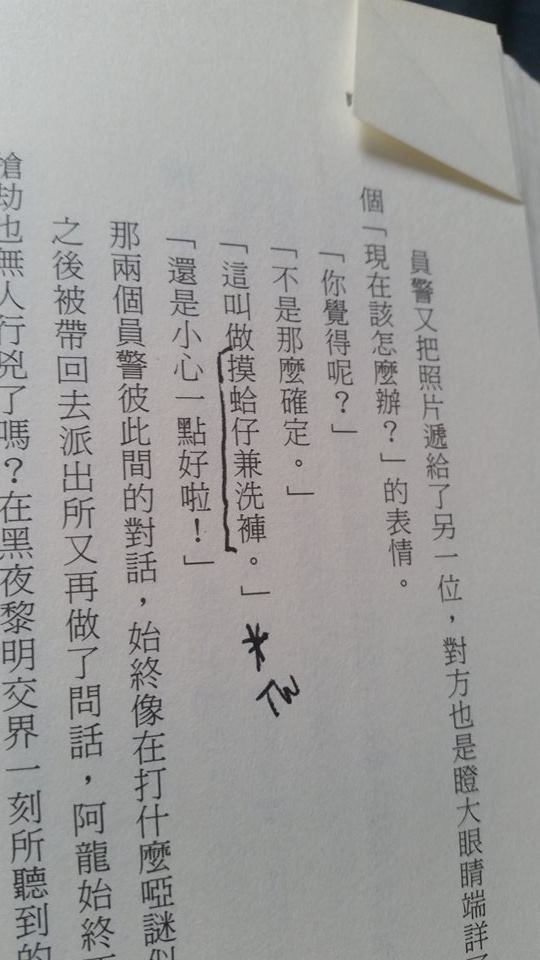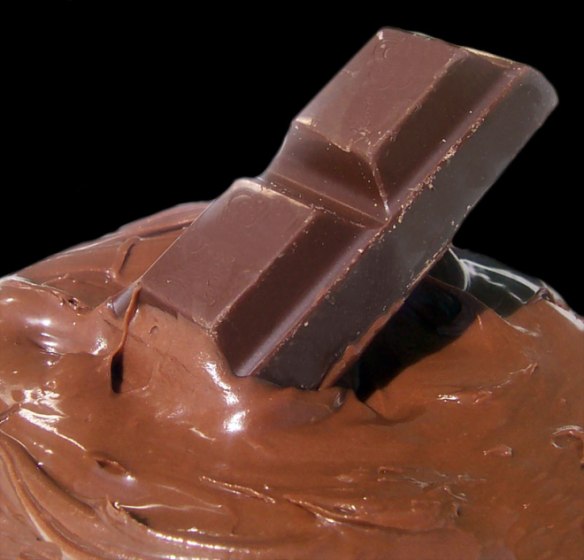 I found the Taiwanese equivalent for the phrase ‘catching two birds with one stone’ in the book I’m reading at the minute:
I found the Taiwanese equivalent for the phrase ‘catching two birds with one stone’ in the book I’m reading at the minute:

The phrase, which literally means ‘washing your trousers while you’re picking clams’ varies slightly from the written form in the Ministry of Education Taiwanese dictionary, which lists it as 「一兼二顧,摸蜊仔兼洗褲」 pronounced “It kiam jī kòo, bong lâ-á kiam sé khòo”. You can see that the 「蜊」is rendered here with a 「蛤」, but this is just an attempt to find a stand in Mandarin character to render the Taiwanese word. The book also only uses the second half of the phrase as listed by the dictionary – bong lâ-á kiam sé khòo – this is as common in Chinese and Taiwanese as it is in English, in that you don’t have to state a whole phrase to get your point across.
I thought the image of people standing in the sea thinking they’re washing their trousers while they’re picking clams was quite amusing.
I also came across a Taiwanese word that is extremely common in Taiwanese Mandarin and is usually rendered using zhuyin (注音):

The word 「ㄍㄧㄥ」 has a variety of uses – but it generally means to tense up, either emotionally or physically. Here it is physical – “You have to tense up all the muscles in your body.” In emotional terms, it can be seen as an equivalent to “clamming up”, or can be used to describe someone’s personality to mean that they’re unable to express themselves or express emotion normally, like repressed.
If you’ve learned any new Taiwanese expressions that you’d like to share with me over the Lunar New Year break or have any questions you can comment below or contact me.
Photo of nuns picking clams by Toni Frissell









